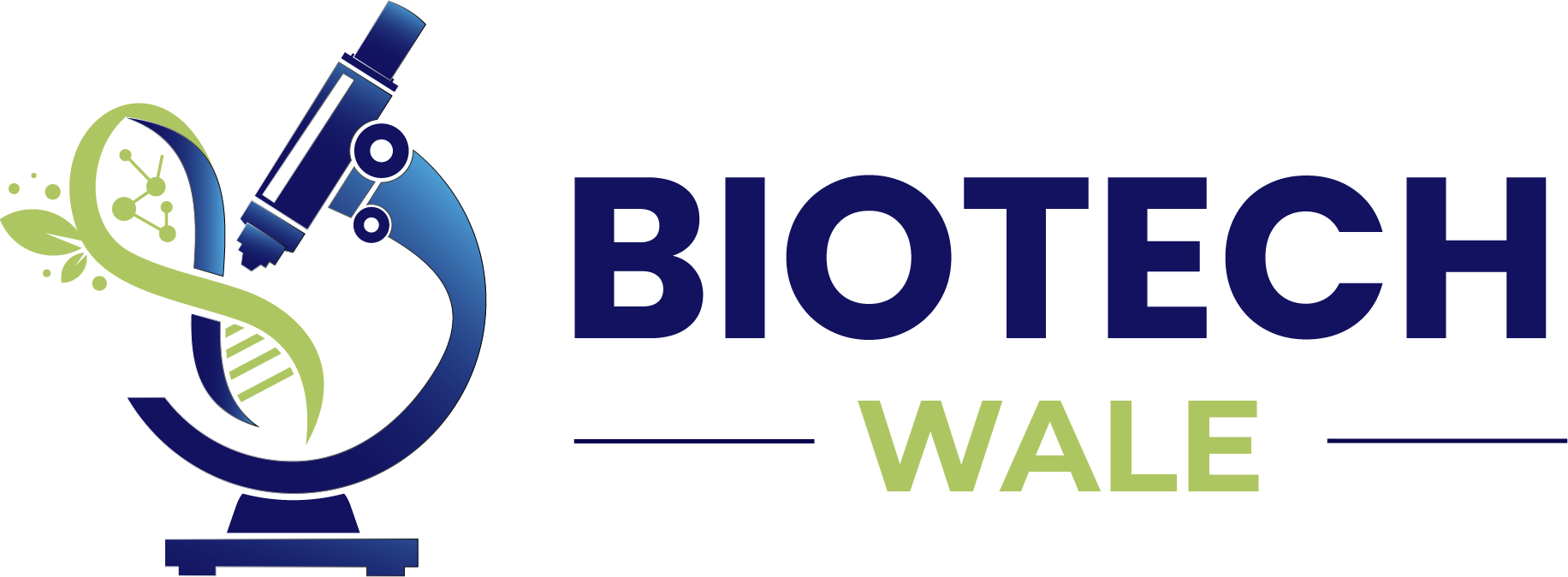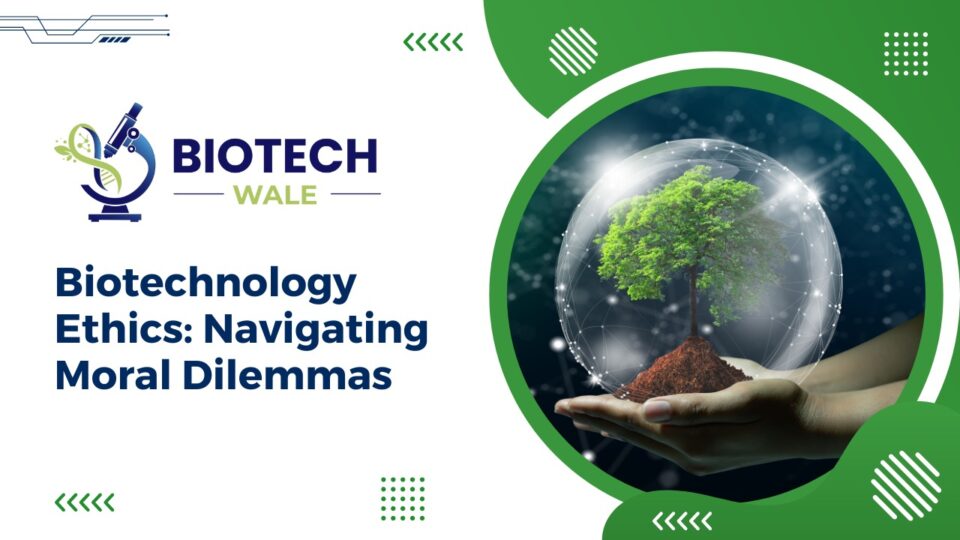Introduction to Biotechnology and its Growing Importance
Welcome to the fascinating world of biotechnology, where science fiction meets reality and innovation knows no bounds. In a time when scientific advancements are rapidly shaping our future, biotechnology stands at the forefront as a revolutionary force driving progress in medicine, agriculture, and beyond. However, with great power comes great responsibility – and navigating the ethical dilemmas that accompany these groundbreaking developments is crucial for ensuring a sustainable and morally conscious path forward. Join us on this journey as we explore the complex landscape of biotechnology ethics and uncover how we can strive towards responsible innovation in this dynamic field.
The Advancements and Controversies of Biotechnology
Biotechnology has revolutionized the way we approach medicine, agriculture, and environmental conservation. With advancements like gene editing and personalized medicine, biotechnology offers promising solutions to complex challenges. These innovations have the potential to improve human health, increase crop yields, and mitigate climate change.
However, along with progress come controversies. The ethical implications of biotechnology raise concerns about genetic manipulation, data privacy, and socio-economic disparities. The debate around genetically modified organisms (GMOs) in food production is just one example of how biotechnological advancements can spark heated discussions among stakeholders.
Navigating these controversies requires a delicate balance between promoting innovation and upholding ethical standards. As technology continues to evolve at a rapid pace, it’s crucial for researchers, policymakers, and society as a whole to engage in open dialogue about the risks and benefits of biotechnological developments.
Balancing Progress and Morality: Finding Solutions to Ethical Issues
As biotechnology continues to make leaps and bounds in innovation, the ethical considerations surrounding its progress have become increasingly complex. Striking a balance between scientific advancements and moral values is crucial in navigating the potential ethical dilemmas that may arise.
It is essential for researchers, policymakers, and industry leaders to engage in open dialogue about the implications of their work on society and the environment. By fostering transparency and accountability, we can work towards finding solutions that uphold both progress and morality.
Ethical frameworks such as respect for autonomy, beneficence, non-maleficence, and justice play a significant role in guiding decision-making processes within the realm of biotechnology. These principles serve as a compass for addressing ethical issues while promoting responsible innovation.
By actively considering the moral implications of biotechnological advancements at every step of development, we can strive towards creating a more sustainable future where progress aligns harmoniously with ethical values.
The Role of Government and Regulations in Biotechnology Ethics
Biotechnology is a rapidly evolving field that holds immense potential for scientific breakthroughs. However, with great power comes great responsibility. Government bodies play a crucial role in overseeing the ethical implications of biotechnological advancements. Regulations are put in place to ensure that research and development in this area align with moral standards and societal values.
By implementing strict guidelines and monitoring mechanisms, governments can help prevent unethical practices such as genetic manipulation or exploitation of human subjects. These regulations serve as a safeguard against potential risks and promote transparency within the biotechnology industry.
Through collaboration with experts, policymakers can stay informed about emerging ethical dilemmas and adapt regulations accordingly. This proactive approach helps strike a balance between fostering innovation and upholding ethical principles in biotechnology research.
The involvement of government authorities is essential in shaping the ethical landscape of biotechnology, ensuring that progress is made responsibly and ethically.
Understanding the Ethical Dilemmas in Biotechnology
Biotechnology, with its capabilities to manipulate genetic material and create new organisms, brings about a myriad of ethical dilemmas that require careful consideration. One of the key concerns is the potential misuse of biotechnological advancements for malicious purposes, such as bio-terrorism or creating biological weapons. Furthermore, issues surrounding consent and privacy arise when it comes to genetic testing and modification. The question of who holds the power to make decisions regarding genetic manipulation also sparks debates around equity and justice.
Moreover, the impact on biodiversity raises questions about the long-term effects of genetically modified organisms on ecosystems and natural habitats. Additionally, ensuring transparency in research practices is crucial to maintaining public trust in biotechnological developments. Navigating these ethical dilemmas requires a thoughtful approach that considers both scientific progress and moral implications simultaneously.
Examining the Role of Ethics in Biotechnology
Ethics in biotechnology plays a crucial role in guiding the responsible development and application of cutting-edge technologies. It involves navigating complex moral dilemmas to ensure that advancements are made ethically.
Examining the role of ethics in biotechnology requires a deep understanding of how scientific progress can impact society, the environment, and future generations.
It involves considering questions around genetic manipulation, research involving human subjects, data privacy, and intellectual property rights.
Ethical frameworks help researchers and industry professionals make decisions that prioritize safety, fairness, transparency, and respect for all stakeholders involved in biotechnological activities.
By critically evaluating the ethical implications of biotechnological practices, we can work towards creating a more sustainable and equitable future for everyone.
Case Studies: Real-Life Examples of Moral Dilemmas in Biotechnology
Biotechnology has brought about groundbreaking advancements in various fields, but with progress comes ethical dilemmas. One real-life case study involves the use of genetically modified organisms (GMOs) in agriculture. While GMOs can increase crop yields and reduce pesticide use, concerns arise regarding their impact on biodiversity and human health.
Another example is the controversial CRISPR-Cas9 gene-editing technology. This tool offers promising solutions for genetic diseases, yet raises questions about designer babies and potential misuse for enhancing traits like intelligence or physical appearance.
In the pharmaceutical industry, there have been cases where companies prioritize profits over patient well-being by withholding crucial information about drug safety or efficacy. Such actions highlight the delicate balance between business interests and ethical responsibilities in biotechnology.
These case studies underscore the complexity of moral dilemmas faced in biotechnology today, emphasizing the importance of thoughtful consideration and responsible decision-making to ensure that advancements benefit society as a whole.
Regulation and Oversight: How Governments and Organizations are Addressing Ethical Concerns
In the dynamic field of biotechnology, ethical concerns are ever-present. Governments and organizations play a crucial role in addressing these issues through regulation and oversight.
Governments worldwide have established regulatory frameworks to ensure that biotechnological advancements adhere to ethical standards. These regulations aim to protect public health, safety, and the environment.
Organizations within the biotechnology sector also actively participate in self-regulation initiatives. By setting internal guidelines and codes of conduct, companies strive to uphold ethical practices in their research and development processes.
Collaboration between governments, organizations, and stakeholders is essential for effective oversight of biotechnological activities. It fosters transparency, accountability, and compliance with ethical norms.
Continuous monitoring and evaluation of these regulations are necessary to address emerging ethical challenges in biotechnology effectively. Adapting regulatory frameworks to keep pace with technological advancements is key to ensuring responsible innovation in this rapidly evolving field.
Future Considerations: What Lies Ahead for Biotechnology Ethics?
As we look towards the future of biotechnology ethics, it is crucial to consider the rapid pace at which advancements are being made in this field. With technologies like CRISPR-Cas9 gene editing becoming more prevalent, ethical considerations become even more complex and nuanced.
One key aspect that will shape the future of biotechnology ethics is ongoing dialogue between scientists, policymakers, ethicists, and the public. This collaboration is essential to ensure that ethical guidelines keep pace with technological developments.
Furthermore, as biotechnology continues to evolve, there will be a growing need for robust regulatory frameworks to govern research and applications in this field. Striking a balance between promoting innovation and protecting ethical values will be an ongoing challenge.
Looking ahead, it’s clear that interdisciplinary cooperation and proactive engagement with ethical issues will be paramount in navigating the complexities of biotechnology ethics. By staying vigilant and responsive to emerging dilemmas, we can strive towards a future where ethical considerations remain central to all biotechnological advancements.
Conclusion: Striving Towards Ethically Responsible Biotechnology Advancements
As we navigate the complex landscape of biotechnology ethics, it becomes evident that a delicate balance must be struck between scientific progress and moral considerations. The future of biotechnology holds great promise, but also significant ethical challenges that need to be carefully addressed.
By recognizing the importance of ethical principles in guiding research and development, we can strive towards creating a more responsible and sustainable biotechnological future. It is crucial for governments, organizations, researchers, and individuals to work together to ensure that advancements in biotechnology are made ethically and with respect for human values.
With ongoing dialogue, education, regulation, and oversight mechanisms in place, we can pave the way for a future where biotechnological innovations benefit society while upholding fundamental ethical standards. Let us continue to push boundaries ethically as we embark on this journey towards a brighter and more conscientious era of biotechnology advancements.





Average Rating